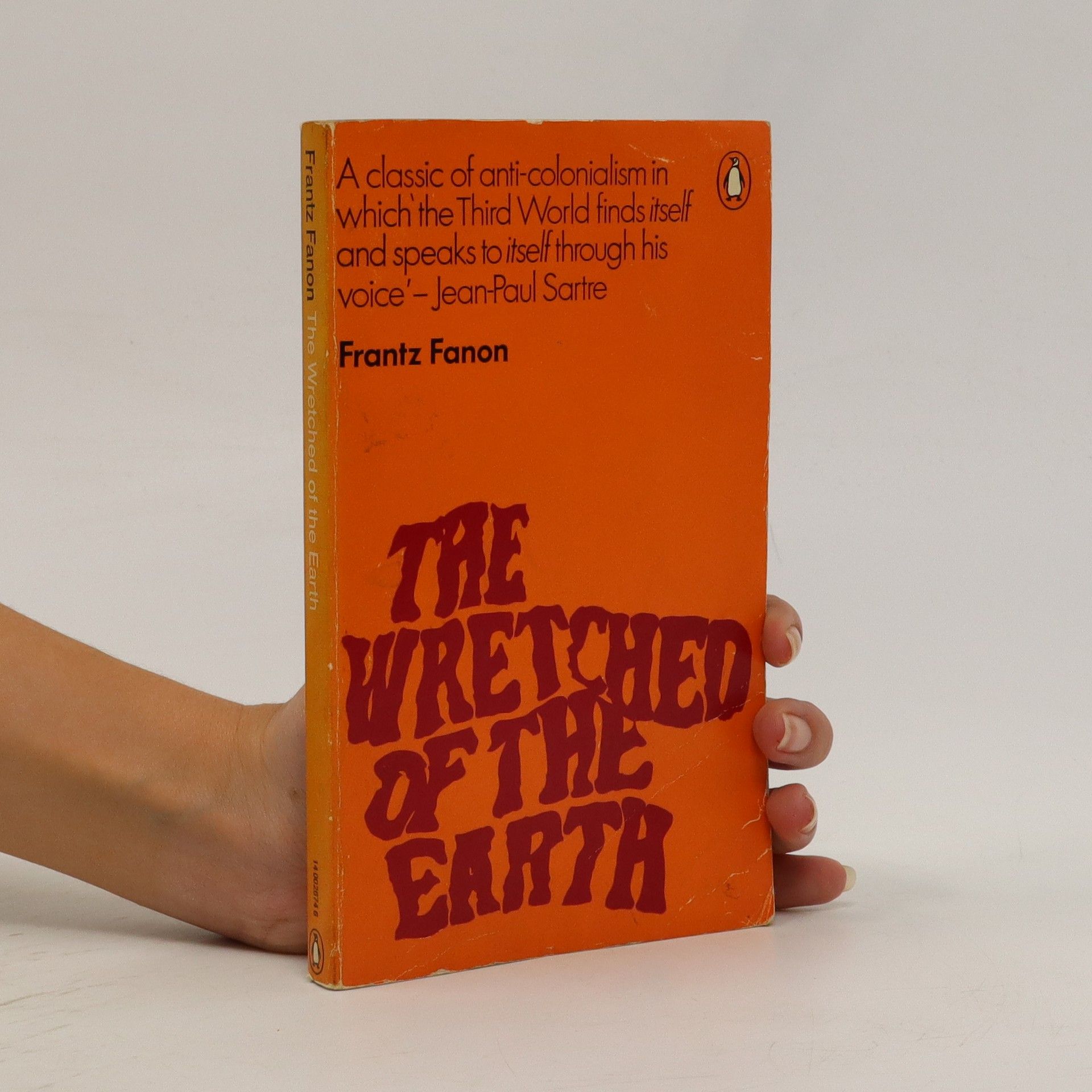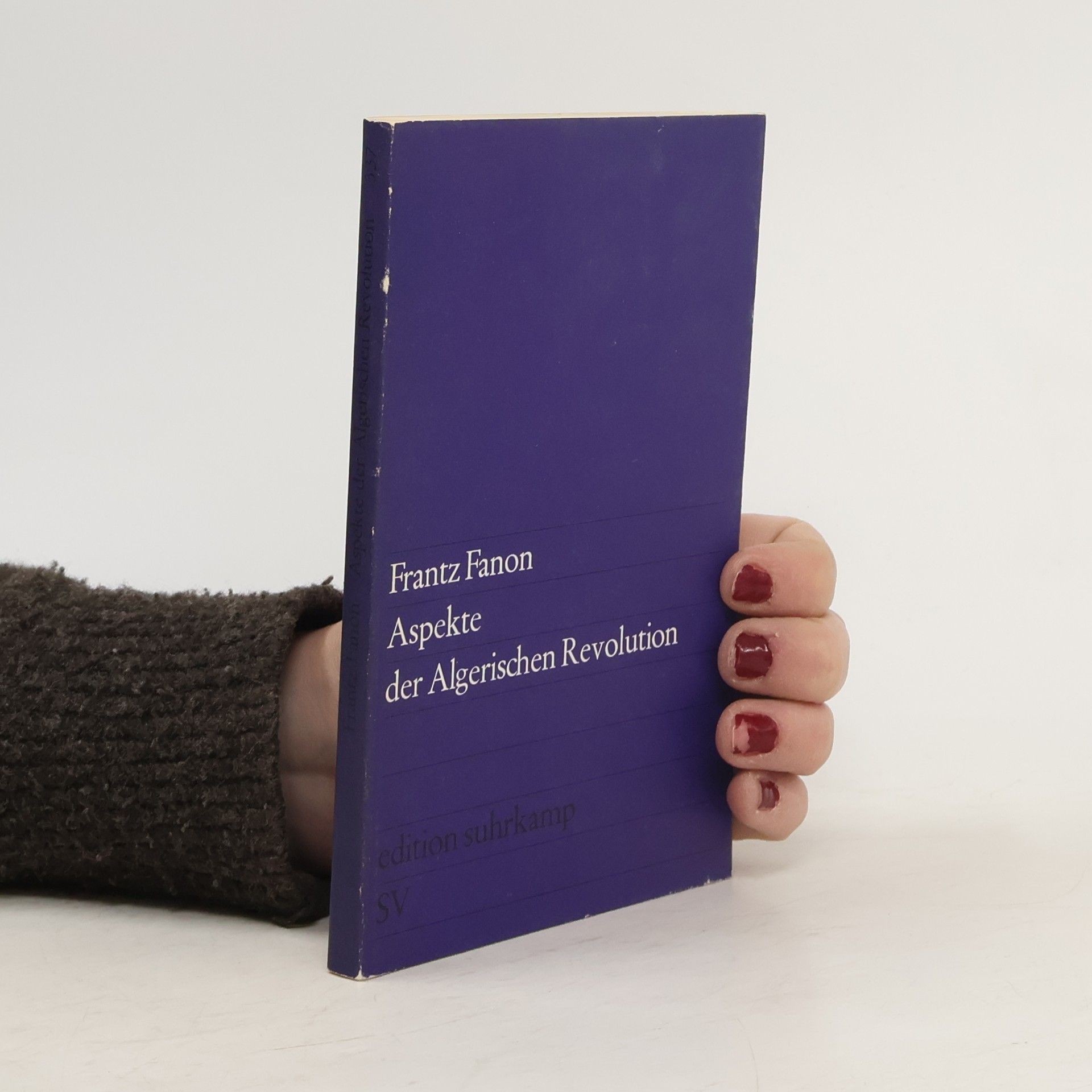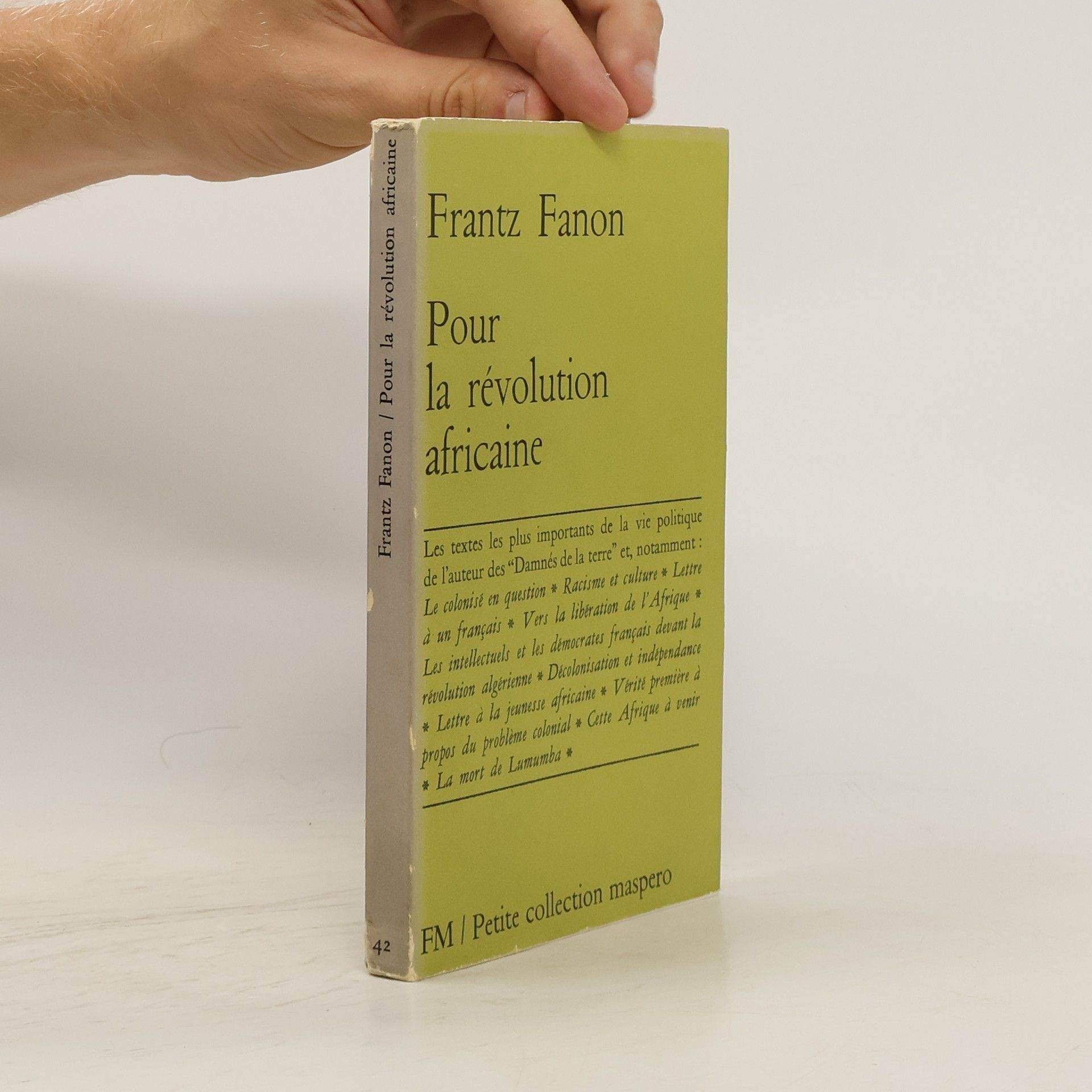This powerful collection of articles, essays, and letters spans the period between Black Skin, White Masks (1952) and The Wretched of the Earth (1961), Fanon s landmark manifesto on the psychology of the colonized and the means of empowerment necessary for their liberation. These pieces display the genesis of some of Fanon s greatest ideas ideas that became so vital to the leaders of the American civil rights movement.
Frantz Fanon Books
Frantz Fanon, a psychiatrist, philosopher, and revolutionary from Martinique, stands as a pivotal thinker in post-colonial studies. His work intensely scrutinizes the psychopathology of colonization, offering profound insights into the psychological impacts of oppression. Fanon's revolutionary ideas have resonated deeply, inspiring anti-colonial liberation movements for decades. His analysis of power, race, and identity continues to shape critical discourse.







A Dying Colonialism
- 181 pages
- 7 hours of reading
Frantz Fanon's seminal work on anticolonialism and the fifth year of the Algerian Revolution. Psychiatrist, humanist, revolutionary, Frantz Fanon was one of the great political analysts of our time, the author of such seminal works of modern revolutionary theory as The Wretched of the Earth and Black Skin, White Masks . He has had a profound impact on civil rights, anticolonialism, and black consciousness movements around the world. A Dying Colonialism is Fanon's incisive and illuminating account of how, during the Algerian Revolution, the people of Algeria changed centuries-old cultural patterns and embraced certain ancient cultural practices long derided by their colonialist oppressors as "primitive," in order to destroy those oppressors. Fanon uses the fifth year of the Algerian Revolution as a point of departure for an explication of the inevitable dynamics of colonial oppression. This is a strong, lucid, and militant book; to read it is to understand why Fanon says that for the colonized, "having a gun is the only chance you still have of giving a meaning to your death."
Frantz Fanon's seminal work on the trauma of colonization established him as a leading anti-colonialist thinker of the twentieth century. This Penguin Modern Classics edition, translated by Constance Farrington and introduced by Jean-Paul Sartre, was written during the Algerian war for independence and first published in 1961. Fanon's classic text has inspired anti-colonial movements, analyzing class, race, national culture, and violence in the struggle for freedom. With power and anger, he highlights the economic and psychological degradation inflicted by imperialism. As a psychotherapist, Fanon revealed the connection between colonial war and mental illness, advocating that the fight for freedom must be paired with the development of a national culture. He proposed revolutionary violence as a path to socialism. While many calls to arms from the decolonization era are now historical, Fanon's passionate analysis of the dynamics between great powers and the 'Third World' remains relevant today. Born in Martinique, Fanon was a French author, essayist, psychoanalyst, and revolutionary who supported Algeria's independence and became a member of the Algerian National Liberation Front. His works have inspired anti-colonial liberation movements for over four decades. If you appreciated this text, you may also enjoy Edward Said's Orientalism, available in Penguin Modern Classics.
The Plays from Alienation and Freedom
- 256 pages
- 9 hours of reading
Prior to becoming a psychiatrist, Frantz Fanon wanted to be a playwright and his interest in dialogue, dramatisation and metaphor continued throughout his writing and career. His passion for theatre developed during the years that he was studying medicine, and in 1949 he wrote the plays The Drowning Eye (L'Œil se noie), and Parallel Hands (Les Mains parallèles). This first English translation of the works gives us a Fanon at his most lyrical, experimental and provocative
Black skin, white masks
- 186 pages
- 7 hours of reading
The explosion will not happen today. It is too soon ... or too late.First published in English in 1968, Frantz Fanon's seminal text was immediately acclaimed as a classic of black liberationalist writing. Fanon's descriptions of the feelings of inadequacy and dependence experienced by people of colour in a white world are as salient and as compelling as ever. Fanon identifies a devastating pathology at the heart of Western culture, a denial of difference, that persists to this day. His writings speak to all who continue the struggle for political and cultural liberation in our troubled times.
The Psychiatric Writings from Alienation and Freedom
- 480 pages
- 17 hours of reading
Diese Sammlung enthält 28 der politischen Aufsätze Frantz Fanons. Sie stammen aus seiner aktivsten Periode und reichen von der Erstveröffentlichung von »Schwarze Haut, weiße Masken« im Jahr 1952 bis zu »Die Verdammten dieser Erde« im Jahr 1961. Seiner Diagnose nach gibt es am Rassismus nichts Zufälliges. Vielmehr fügt er »sich in ein charakteristisches Ganzes ein, das der Ausbeutung einer Gruppe Menschen durch eine andere« impliziert. Für Fanon konnte es daher nur eine einzige Lösung geben: »Das logische Ende dieses Kampfwillens ist die totale Befreiung des nationalen Territoriums« und »der Kampf ist von Anfang an total«. Die hier versammelten Aufsätze erlauben einen umfassenden Einblick in das Leben und Denken eines der spannendsten und produktivsten Denker des 20. Jahrhunderts.
Les textes politiques de Frantz Fanon publiés dans ce volume couvrent la période la plus active de sa vie, de la publication de Peau noire, masques blancs en 1952 - il avait alors vingt-huit ans - à celle des Damnés de la terre en 1961, qui devait coïncider, à quelques jours près, avec la date de sa mort. Retraçant le fil d'une réflexion en constante évolution sur le phénomène colonial, vécu de l'intérieur, ces textes dénoncent à la fois le colonialisme et les pièges de la décolonisation, - la «grande erreur blanche» et le «grand mirage noir ». Explorant tour à tour la situation du colonisé, dont il peut rendre compte scientifiquement par son expérience médicale quotidienne, l'attitude des intellectuels de gauche face à la guerre d'Algérie, les perspectives de conjonction de la lutte de tous les colonisés et les conditions d'une alliance de l'ensemble du continent africain, Frantz Fanon gardait la certitude de la prochaine libération totale de l'Afrique. Son analyse et la clarté de sa vision nous donnent aujourd'hui les clés nécessaires pour comprendre la réalité africaine actuelle.


